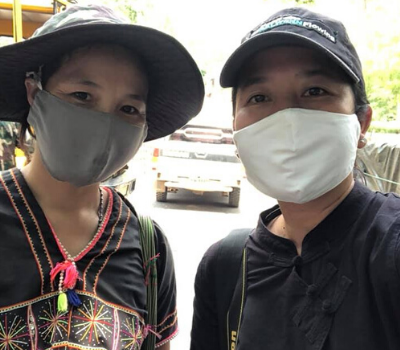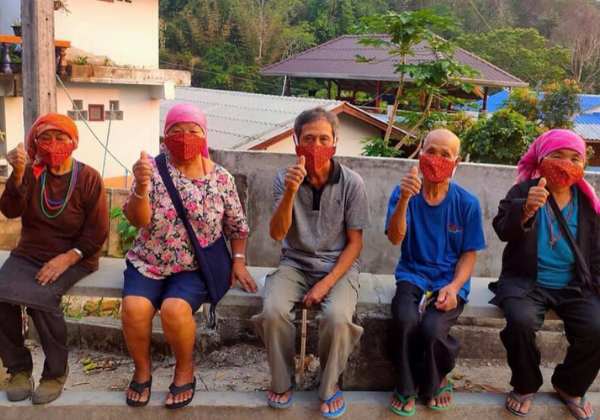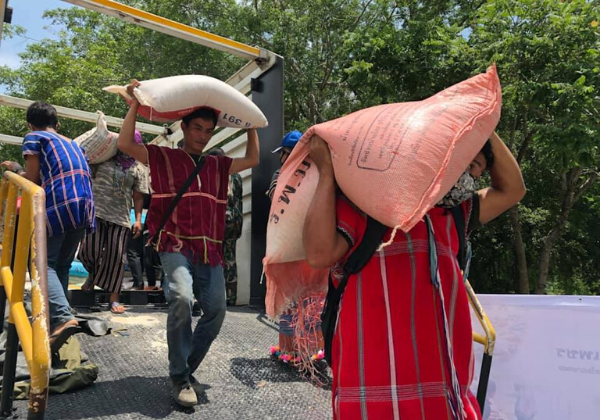By: Pai Deetes, Thailand & Myanmar Campaigns Director
The global Covid-19 crisis has shed a light on the deep-seated inequities in the way our rivers and the people who depend on them are treated. With the exposure created by this crisis comes an opportunity. As International Rivers adapts to current circumstances, we are strengthening our support network to partners and communities facing immediate challenges, while working toward solutions that re-imagine a healthier future for our rivers.
We are grounding this work in the direct experience of our long-time partners and those facing increased threats. The following blog series, “Crisis to Opportunities,” is written from our regional campaign staff in the Mekong, Salween, Congo, Amazon and Patagonia, and Ganges/Brahmaputra river basins. For each region, we seek to answer two questions: What are the impacts and challenges we currently face? And what solutions are arising?
What are the impacts we are seeing in the Mekong River region now with the pandemic?
The pandemic has shown us the importance of rivers and natural resources as a safety net during times of crisis. With lockdowns and the economic fall-out of the pandemic, many people – informal workers, laborers, taxi drivers, and more – have been returning from cities to rural areas.
In times of crisis with no income, the forest, rivers, and wetlands – nature’s supermarkets – provide food and nutrients. This is critical in countries in the Mekong region that have limited social safety nets available for people affected by the pandemic and lockdown.
However, the ability of the Mekong and other major rivers to sustain communities is under threat. Declines in fish populations and natural resources are making life more difficult for some people living along the rivers. This situation has been increasingly severe due to extensive hydropower development in the Mekong basin, which has destroyed fisheries, reduced productivity of local farmers and altered flow regimes that people rely on for livelihoods.
The impacts of pandemic are uneven, with already marginalized groups most impacted by the crisis. Communities displaced by dam and other large infrastructure projects before the pandemic are now facing more severe food and income shortages than the rest of the population. For example, UN Human Rights experts recently raised concerns over ongoing difficult living conditions and food insecurity faced by villagers who lost their homes and farmland in the Xe-Pian Xe-Namnoy dam collapse in Laos since 2018.
On a positive note, there is strong solidarity between communities. We see Karen ethnic communities including those in the Salween basin, who have worked to protect the Salween for the past 20 years, mobilizing Covid relief by collecting rice they cultivate to donate to Covid-affected communities. What I am seeing is that communities that have organized strongly to protect themselves when facing a large dam project are now using that same solidarity to protect their families and communities from the impacts of the pandemic.
What are the solutions arising?
Construction of many dam projects on the Mekong basin has been temporarily halted due to the pandemic. The economic slowdown has raised questions over the future of these projects.
Many of the hydropower dams in the Mekong are being built for export – with Thailand as a key buyer for electricity. But Thailand has massive over-supply of electricity – which has been further increased with the economic fall-out from Covid-19.
So, today it is more clear than ever: large dams that destroy rivers and people’s livelihoods are not needed. The pandemic and slowdown provides an opportunity to stop these destructive projects and replace them with more sustainable and equitable energy options.
This would offer a future way forward for the Mekong River that is both just and environmentally sound.
Many in the region are aware of this moment of opportunity. There is growing support for just energy transitions, which respect community rights to rivers and natural resources.
We are also gaining momentum from some recent victories for protecting the Mekong River: in February a rapids blasting project on the Mekong was cancelled by the Thai cabinet after two decades of civil society and grassroots community resistance. This means that a highly biodiverse 600km area of the Mekong that is critical to the livelihoods of thousands of local and traditional peoples will be protected from destructive industrial development. The Cambodian government has also recently announced that it is suspending dam building on the mainstream of the Mekong River for at least 10 years.
These victories are the result of long-term, sustained movements of grassroots communities and civil society in the region. The lessons learned from these campaigns can be channeled into our work in creating a new future for the Mekong region and beyond – and strong community and civil society movements continue to be the key to success.

Featured image: Elders receive face mask donations in a Mekong village | Photo by Pai Deetes.


